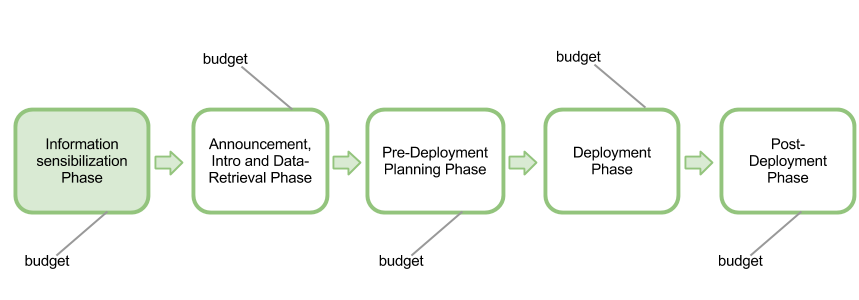Talk:OLPC Europe/Institutions
Jump to navigation
Jump to search
This data mainly came from the olpc community belgium
Read: http://wiki.laptop.org/go/Report_JDC_SAX_meeting_dd_20140109
Lessons learned
In the EU and EU member states, stress that olpc brings programming back into the classroom, or learning kids to learn.
- OLPC's mission of learning kids to program = learning kids to learn is as important as bringing an open source, open community, open software, open robotics laptop: programming is disappearing from the curricula, much to the frustration of the ICT teachers and specialists at the cabinets. It is up to the school-networks, organising education in the country - to come up with a vision around ICT. Because of lack of real ICT teachers who feel at ease with programming, this discipline disappears or has has disappeared. In Uruguay, programming has become compulsory as per http://newsroom.cisco.com/feature/1240339/Network-Trailblazer-A-Conversation-with-Nicholas-Negroponte-Founder-One-Laptop-per-Child?utm_medium=rss . In Europe, teachers try to hide away stating that the teachers all use powerpoint, word, excell etc. in their classroom, kids have to surf to a website to make additional exercises and learn themselves about google+, facebook etc, and this would be "Informatics". Of course this is not programming: analysing a problem, dissecting it into sub-problems, solving them and then bringing them all together. So: In the EU and EU member states, stress that olpc brings programming back into the classroom, or learning kids to learn. --SvenAERTS 16:45, 24 March 2014 (UTC)
In the EU prepare and inculcate enough time for sensibilization, capacity building, finding grant forms as the money is there but you have to be organized
- We have very complex educational landscapes: many players organise education in a country. So a lot more attention has to be given to the "information, sensibilisation, capacity building phase" than in e.g. Uruguay, Peru, Rwanda, where the Ministry of Education runs the whole educational landscape basically. Nicholas NEGROPONTE also gives this as the main reason why the educational landscape in the USA is so slow in picking up the XO-XS: Negroponte: The U.S. is a much harder problem. The system itself is part of the problem. Last I looked there were 15,000 school districts. How do you deal with 15,000 districts? You can’t really make the kinds of changes we found ourselves able to do in Ethiopia, Rwanda, Uruguay or Peru. So it’s a harder problem, the way it’s organized the way it’s financed. More: http://newsroom.cisco.com/feature/1240339/Network-Trailblazer-A-Conversation-with-Nicholas-Negroponte-Founder-One-Laptop-per-Child?utm_medium=rss
--SvenAERTS 16:45, 24 March 2014 (UTC)
 - More: Deployment
- More: Deployment